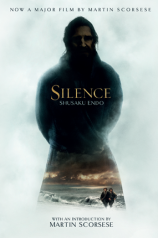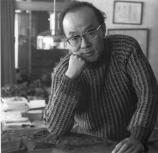Reading Group Guide
Discussion Questions
Silence

Questions and Topics for Discussion
1. While still in Macao, Rodrigues is told that Inoue, “quite unlike his predecessor Takenaka…was as cunning as a serpent so that Christians who until now had not flinched at threats and tortures succumbed one by one to his cunning wiles” (p. 13). What makes Inoue’s style of persecution so effective? Does the fact that Inoue was once baptized affect his actions?
2. The Japanese Christians pester Rodrigues with requests for “a small crucifix or medal or holy picture of some such thing” (p. 45). Does this desire indicate --- as Rodrigues fears --- “some error in their outlook” (p. 45)?
3. Did your opinion of Ferreira and his apostasy change over the course of the novel? If so, how? Was there a particular moment you consider the turning point?
4. Rodrigues comes to regard Kichijirō as his Judas. Is this a fair comparison? Why can’t Rodrigues bring himself to love and forgive Kichijirō as he believes Jesus would?
5. Do Kichijirō’s many weaknesses and acts of betrayal make him less Christian than someone like Mokichi, who dies rather than renounce his faith? What compels Kichijirō to seek Rodrigues out again and again?
6. We learn early on that Rodrigues is “fascinated by the face of Christ just like a man fascinated by the face of his beloved” (p. 21). What does this tell you about him?
7. Would Rodrigues have welcomed his own martyrdom? Why is Garrpe “allowed” to die while Rodrigues is kept alive?
8. Were Garrpe and Rodrigues adequately equipped for their mission? Is there any way they could have better prepared themselves for what they were about to experience?
9. When they finally meet, Ferreira tells Rodrigues, “the Christianity [the Japanese] believe in is like the skeleton of a butterfly caught in a spider’s web: it contains only the external form; the blood and the flesh are gone” (p. 163). Do you agree or disagree with his assessment? Why?
10. Rodrigues is fully aware that his letters may never reach Portugal and may, in fact, never be read by anyone. Why then does he write them?
11. Before he and Garrpe leave Macao, Rodrigues writes, “But everything that God does is for the best. No doubt God is secretly preparing the mission that someday will be his” (p. 21). In what way might Ferreira and Rodrigues’ apostasy be part of God’s plan?
Additional Theological Questions
1. The novel’s primary theme --- maintaining faith during difficult times --- is one that still powerfully resonates today. Although persecutions of the kind suffered during the era depicted in SILENCE are largely over, what are some of the biggest challenges faced by today’s Christians?
2. Rodrigues suspects that the villagers of Tomogi and the other Japanese Christians he meets are susceptible to the idea of a heavenly paradise because “life in this world is too painful for these Japanese peasants” (p. 63). Do you agree? Is religion too often simply a balm for an unhappy existence?
3. What insights did Rodrigues’ struggle offer you about your own relationship with Christ?
4. When Rodrigues arrives in Tomogi, it’s been several years since the Japanese Christians had a priest to guide their religious practices. How might you continue to practice your faith without the support of an institution?
5. Like Rodrigues, have you ever found yourself asking why God is silent when so many yearn for His succor? If so, how do you respond?
6. Do you agree with Ferreira’s assertion that Jesus, during his time on earth, would have apostatized rather than allow the Japanese Christians to be tortured and martyred on his behalf?
7. Why do you think so many of Japan’s “Hidden Christians” chose not to become a part of the Catholic Church once the country tolerated its presence?
8. Rodrigues noted how “the greater part of the Chinese show no interest in our teaching. On this point Japan is undoubtedly, as Saint Francis Xavier said, ‘the country in the Orient most suited to Christianity (p. 14).’ ” Yet, today Christianity is a minor religion in Japan, whereas there are as many as 100 million Christians in China. Besides the period of persecution featured in SILENCE, what might be some other reasons for this shift?
Additional Literary Questions
1. How convincingly does Endō inhabit the mind and soul of this Portuguese missionary? What, if any, elements of the novel reveal that the author is Japanese?
2. Rodrigues pays a tremendous amount of attention to the country’s flora. Discuss an instance in which Endō uses Rodrigues’ meditation on the country’s natural vegetation to reflect the bigger story.
3. Why does Endō employ both a third person and a first person narrator? What would the novel lose if it were only written from Rodrigues’ point of view? The narrator’s?
4. Endō is often compared to Graham Greene, who also used his novels to explore issues of faith. Are there any other similarities between their work? Can you think of any other writers whose work Endō’s evokes?
5. Do you consider yourself a Christian? How do you think the answer to this question informs your understanding of the novel?
Silence
- Publication Date: January 10, 2017
- Genres: Fiction, Historical Fiction, Literary, Religion
- Paperback: 256 pages
- Publisher: Picador Modern Classics
- ISBN-10: 1250082277
- ISBN-13: 9781250082275







